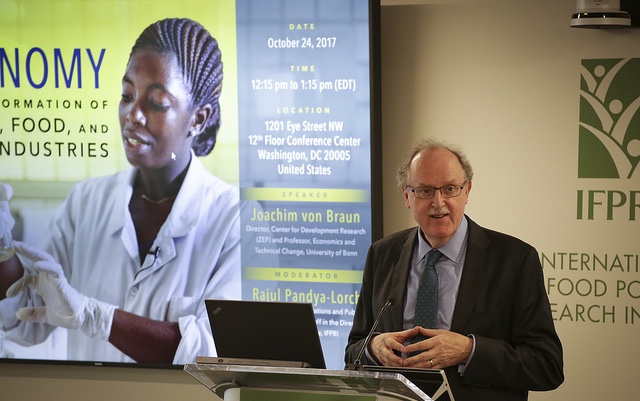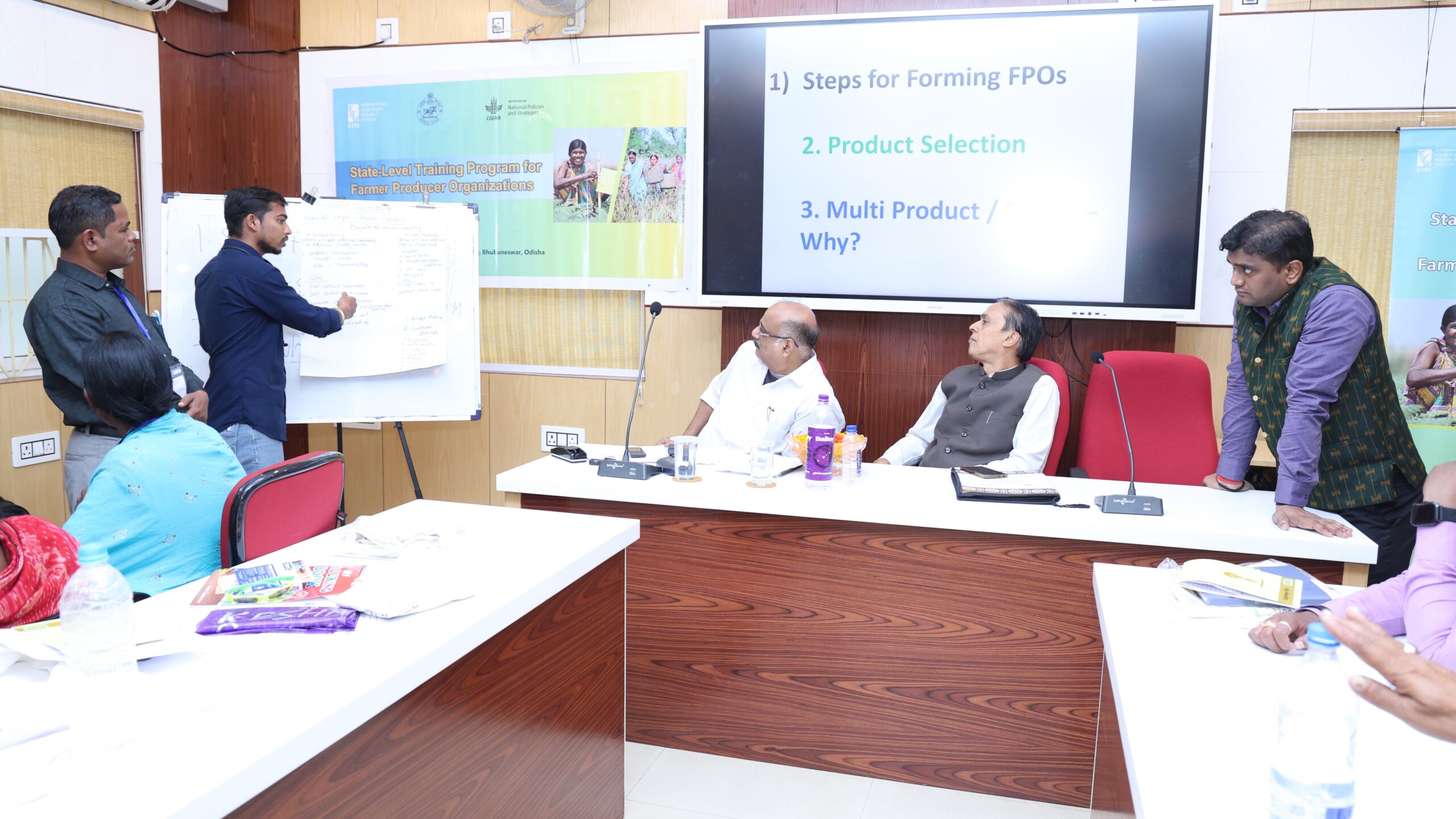Bioeconomy—the sustainable production and use of biological resources, processes and principles to provide products and services in all economic sectors—is the pathway for achieving key Sustainable Development Goals (SDGs) related to food security and nutrition; health and well-being; and clean water and sanitation, Joachim von Braun said at a recent IFPRI policy seminar.
Bioeconomy is not a “new” sector, said von Braun, director of the Center for Development Research (ZEF) at the University of Bonn. Rather, it cuts across many existing sectors. “It’s almost like digitization. Bioeconomy is a cluster with inter-linked value chains, therefore, cannot be clubbed into a sector,” he told participants at the seminar, “Bioeconomy: The new transformation of agriculture, food, and bio-based industries—implications for emerging economies.”
Increasingly, countries—both developed and developing—around the world are adopting resource-based and knowledge-based bioeconomy policies and strategies. “Six years ago, only few countries had bioeconomy policies. But that’s changing, and as a result a lot of different bioeconomies are emerging around the world,” said von Braun.
Essential to bioeconomy’s growth are technological, organizational, social and policy innovations. But, for bioeconomy to evolve in any meaningful way to combat the challenge of climate change, countries—from North and South—must act collectively, sharing science and technology to open opportunities for low-income countries and facilitating trade to capitalize on knowledge, he said. The appeal of bioeconomy lies in consumer demand for bio-based products, von Braun said, which will ensure that the market-oriented system responds positively to it.
Emphasizing on the role both public and private sector are playing in different countries to spur research, von Braun pointed out how public sector policies are setting the course for the bioeconomy movement in western Europe, whereas the private sector is taking on that mantle in the United States and many emerging economy countries.
Smita Aggarwal is an IFPRI Communications Specialist.







